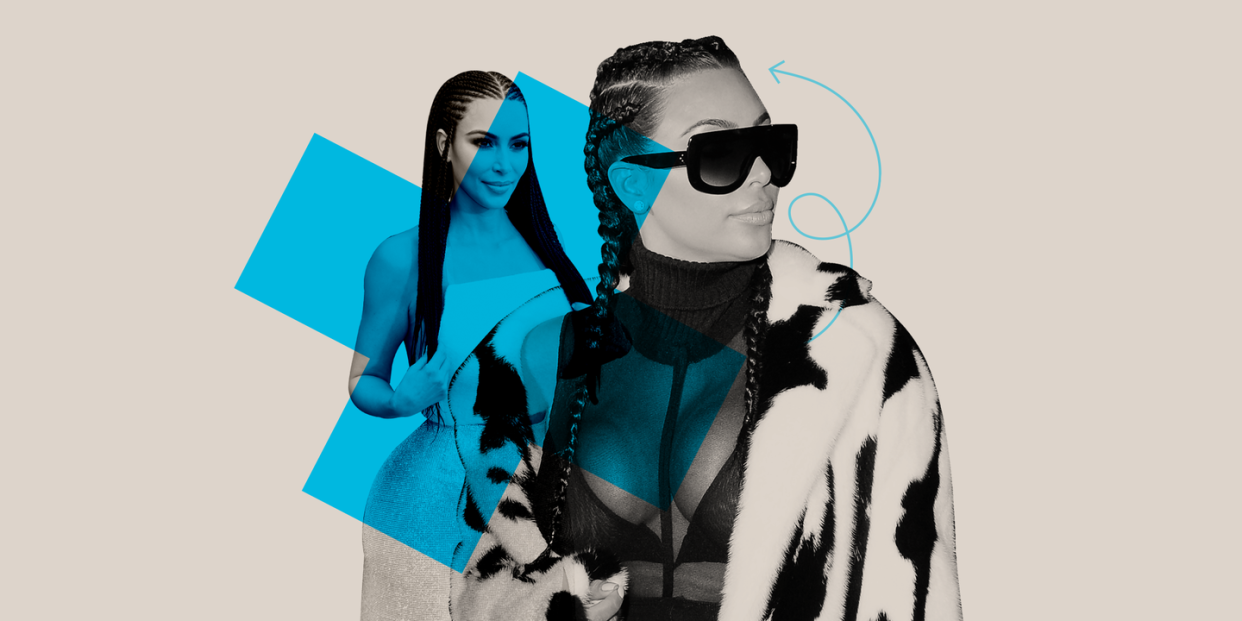You Can’t Say Black Lives Matter if You’re Still Appropriating Black Culture

A few days after George Floyd was murdered, I tweeted, “I’m seeing a lot of people who actively appropriate Black culture posting about this police brutality as if they are not also implicated in this system of oppression.” Honestly, I posted this because as a Caribbean person of Indian descent, I saw so many people from my own community doing this and it was mind-boggling to me that they didn’t understand the parallel. The post reached more than 10,000 people with a fair amount of support and some detractors. The majority of people responded with clap emoji and “Yes! Thank you!” comments. There were a few who said things like, “This is a ridiculous comparison, people just want something to be offended by even when others are trying to show support.”
But after a few back-and-forths, it became clear that so many people in my mentions didn’t realize cultural appropriation, which occurs when a member of a dominant culture uses elements of another more marginalized group’s identity for profit or in a dismissive way, can actually cause harm for the group whose identity is being commandeered—and that appropriation is connected to the same system of racism that’s fueled by discrimination, systemic inequality, and police brutality.
I’m seeing a lot of people who actively appropriate black culture posting about this police brutality as if they are not also implicated in this system of oppression. If you’re a non-black POC and you wear cornrows, use AAV etc..
— Shivani Persad (@liveshiv) May 29, 2020
We’ve seen it time and time again: When a non-Black person dresses in a way that one would attribute to Black culture, it’s “just fashion.” However, the Black person whose style is being imitated is seen as a “thug” for wearing the same thing. These harmful stereotypes are part of the reason Black people are more heavily targeted by police, to begin with.
Or consider this: If a non-Black person wears cornrows, it’s a hairstyle they can take on and off as they please, without consequences. If a Black person wears cornrows, they can expect a considerable amount of prejudice for wearing this hairstyle. They’re often called “ghetto,” “unprofessional,” or “unkempt.” In fact, many traditional Black hairstyles like Afros, dreads, and braids are banned from certain workplaces and make Black people the target of unfair professional discrimination. To wear cornrows as a non-Black person is to completely dismiss and trivialize the experience a Black person has doing the same thing. Understandably, to Black people, it isn’t “just a hairstyle.”
And what about the many non-Black people who exploit Black culture for profit? Just think about the most popular (white) creators who garnered millions of views per TikTok video and secured brand deals by performing dances choreographed by Black dancers. Should this be considered appropriation? Even racist? Yes, because white creators are profiting off of culture created by Black people—without giving them any credit for it. Additionally, the Black creators do not receive even remotely the same amount of recognition or monetary benefits as the white dancers who did their choreography.
Think about it: So much of American culture was shaped by Black people. Just look at streetwear, which was started by Black designers like Willi Smith and is arguably one of the biggest influences in mainstream fashion. Or rap music, one of the most listened to genres worldwide, which was started by Black DJs in the 1970s and has been appropriated by way too many non-Black people to even begin to count.
This kind of appropriation perpetuates racial inequality and inequity—like how the Black TikTok dancers did not get credit for these dances until the white creators were called out. In this way, the appropriation of Black culture contributes to a very real power imbalance, in which non-Black people reap the benefits of partaking in Black culture while Black people are oppressed for doing the same thing.
So let’s be honest: If you appropriate Black culture, you’re contributing to the racist system as well. If you don’t understand why people get angry at comments like “it’s just a hairstyle,” “it’s just an accent,” or “it’s just a pair of baggy jeans,” this is why. Cultural appropriation is about more than wearing a certain outfit, changing the way you speak, dancing a particular way, or choosing a specific look. It’s about power dynamics.
If we want to eradicate racism, we have to work on it in all forms, covert and overt, because it all contributes to the same outcome: a society where Black people are systemically oppressed. If you claim to support Black people and value Black life, you cannot turn around and appropriate their culture. Non-Black readers, ask yourself:
Do I give credit where it’s due?
Do I acknowledge the struggle of the Black community when I wear cornrows or change my accent or dress in a way that is influenced by Black culture?
Do I fight racism every day, or do I let racist comments slip by?
Do I allow anti-Blackness to continue in my home, or do I speak up?
Have I ever asked a Black member of my community how they feel about appropriation?
You Might Also Like

